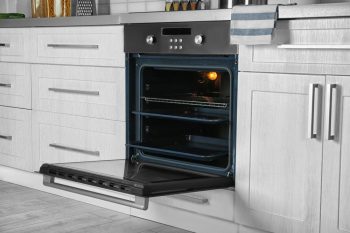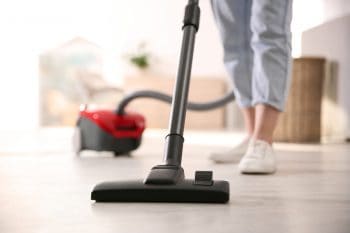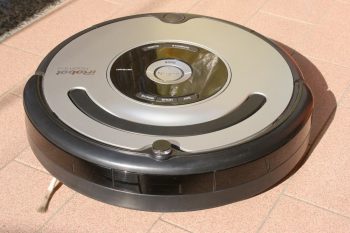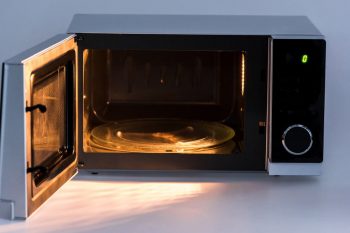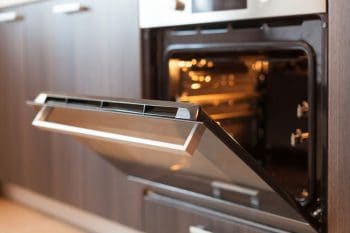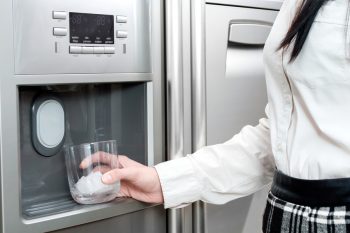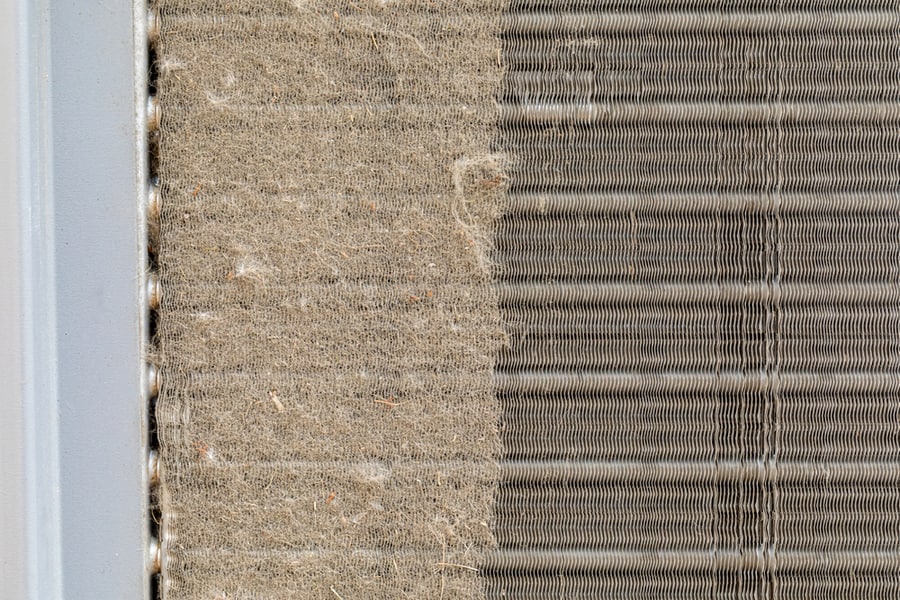
Your air conditioner’s condenser plays an important part in your air conditioner’s cooling process. Found outside of the unit, the condenser takes it upon itself to convert refrigerant into a liquid and remove heat.
This heat transfer is what makes it possible to cool your room. Without the work of a condenser coil, your home will always stay warm.
But because it’s located outdoors, the condenser is particularly prone to the elements. Dirt and debris, in particular, can clog the condenser and impair its normal, efficient functioning.
So what happens when your condenser is clogged?
- A clogged condenser can impede airflow and cause functional problems for the entire AC.
- As the unit works harder to keep your home cool, you might also expect your electricity bills to rise.
- A clogged condenser can cause your air conditioner to break down entirely when allowed to persist.
You’ll notice when your condenser coil is clogged. As the vital component struggles to perform, the rest of the air conditioner will fail to cool your space.
For this reason, it’s important to keep your condenser in proper condition. Otherwise, you might end up running your air conditioner to no avail.
What Happens When an AC Condenser Is Clogged?
1. Impaired Cooling Function
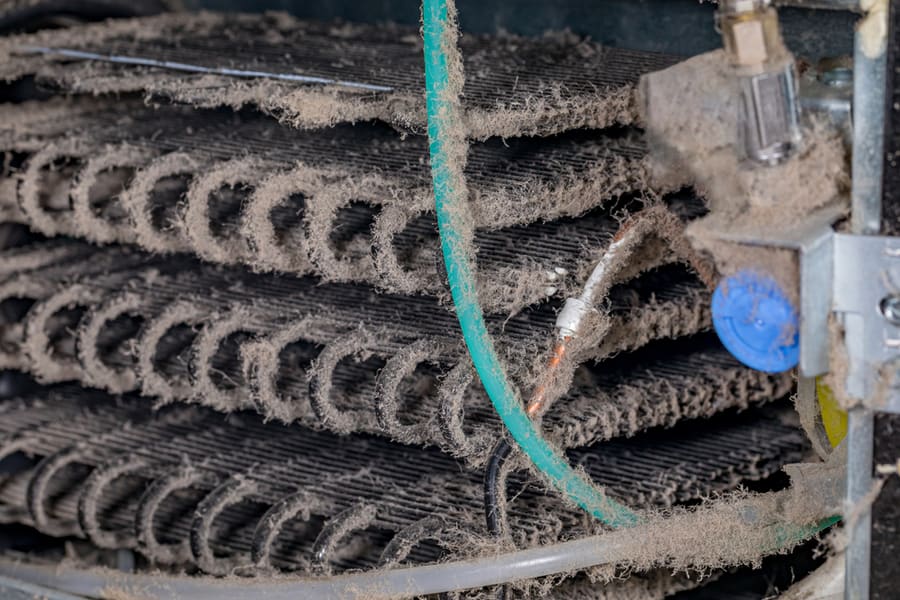
The most obvious result of a clogged condenser would be poor cooling performance. This is because the condenser facilitates heat transfer from the refrigerant so it can return to the evaporator to collect warmth from your home.
If the refrigerant doesn’t successfully offload the heat it collected, the warmth will remain as it cycles back through the unit.
Dirt and debris that clogs and blocks your condenser can impair heat transfer from the refrigerant and out of the unit.
This ultimately reduces your air conditioner’s capacity to cool your space. So you might notice that your AC will start to blow warm air instead.
2. Increased Electricity Bills
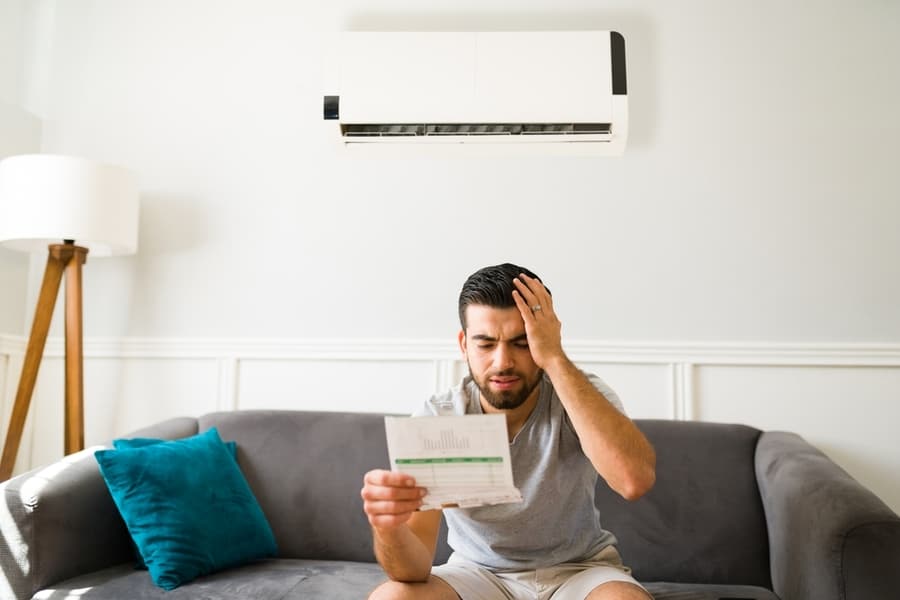
Most air conditioners have a two-speed motor. When you set the thermostat, the motor turns on its full-speed setting as it races to reach the temperature you set.
When the unit detects that the thermostat has been met, it starts idle mode, reducing the energy the unit consumes.
If you notice your air conditioner roar back to life after a few minutes or hours, you’ll know it has activated its motor to maintain the thermostat you’ve set.
If your air conditioner can’t meet your thermostat settings, it will keep trying until it does. So instead of giving the motor regular breaks in between, the air conditioner forces the motor to keep going.
This can increase the unit’s energy consumption, causing your electricity bill to soar.
3. Total Breakdown
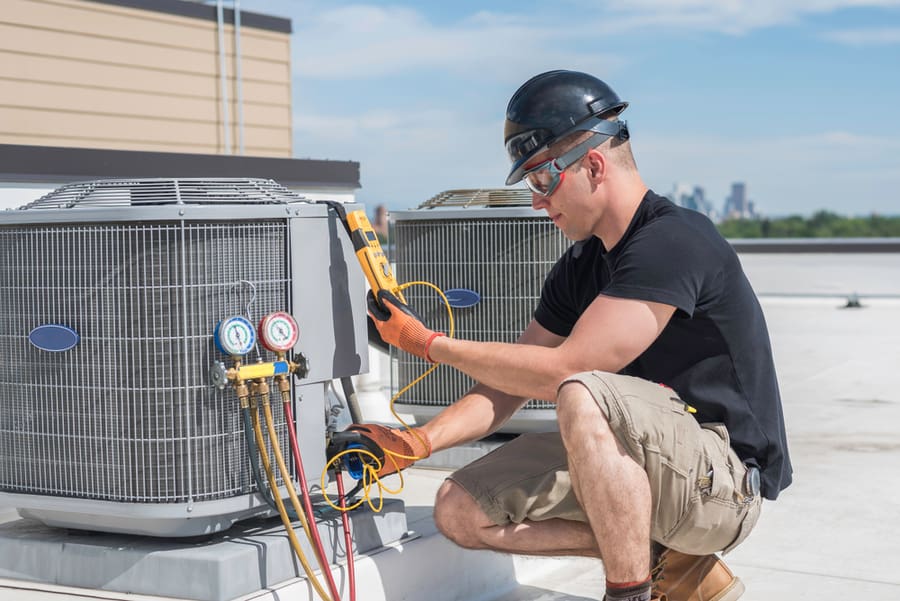
The condenser is one of the most important parts of your air conditioner. So when left clogged and damaged, the whole unit will struggle to achieve its goal.
The air conditioner may suffer other damages, overworked and worn, as its parts work harder to compensate for the condenser’s condition.
Your air conditioner might likely break down entirely with all the different components overworked.
Summary
Keeping your condenser clean is part of proper air conditioner maintenance. Aside from keeping the unit functional and problem-free, proper cleaning may also help keep your warranty intact.
If you haven’t had your condenser checked in a while, call your HVAC specialist to schedule a cleaning.
Frequently Asked Questions
Can You Clean Your Condenser Yourself?
Yes, it is possible to clean your condenser on your own. If you don’t want to spend the extra money to hire an HVAC professional, here’s a quick run-down of what you need to do:
- Turn off the unit and unplug it from its outlet.
- Remove the outer case of the condenser.
- Take out any debris, dirt, and leaves from the space.
- You can opt to use a leaf blower to eliminate dust particles.
- Use a commercial condenser cleaning spray to clean the coils.
- Allow the unit to dry before replacing the cover.
Can a Clogged Condenser Cause Overheating?
It most definitely can. Overworking the motor will generate more heat. This can cause the unit to short circuit, tripping its corresponding switch in your circuit breaker.
In worst cases, the overheating may even cause an electrical fire.

